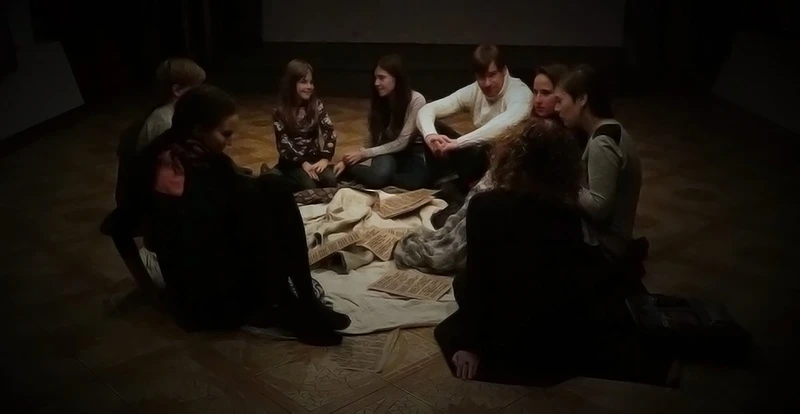Sasha Huber & Petri Saarikko: Remedies – Lullaby Nest in collaboration with Matshidiso
27 Sep-7 Dec 2024
PV 26 Sep 2024, 6.30-8.30pm


The Showroom presents Remedies – Lullaby Nest by Finland-based artist duo Sasha Huber and Petri Saarikko. The project marks a new chapter in the artists’ ongoing Remedies series, begun in 2010 to explore diverse approaches to healing in different geographical and cultural contexts.
With Lullaby Nest the artists consider the age-old tradition of the lullaby within the context of their Remedies project as a way of upholding time and space for rest and sleep. This intimate gesture of caretaking and soothing a child to sleep is an ancient, inherited knowledge deeply embedded in human experience. Spanning across cultures, lullabies share similar melodic, structural and rhythmic patterns – gentle, repetitive and reassuring in tone – which slow down heart and respiration rates in children and adults alike. Regardless of the language, lullabies hold the calming, hypnotic characteristics which can soothe a child to sleep. As well as their role in nurturing secure child/caretaker attachments, they serve an important function in the development of a child’s inner world while being carriers of cultural traditions. Additionally, the lullaby is beneficial to the practitioner: humming and singing help to self-soothe, and the words – sometimes full of hope, sometimes melancholic or even disturbing – can serve as a catharsis for the caretaker to process their own worries or circumstances.
At the Showroom Huber and Saarikko offer this universal, commonplace remedy as an antidote to the relentless overstimulation and crisis-fuelled reality of our everyday lives, in what is often a hostile and violent world. The gallery space is reimagined as a nest, a caring and supportive structure providing time and space to rest, with an immersive soundscape by London-based music artist Matshidiso. The composition includes recorded fragments of lullabies sung by members of the local community in their own languages, bringing together threads of diverse ancestral narratives passed down orally from generation-to-generation.
In his book 24/7: Late Capitalism and the End of Sleep, Jonathan Crary emphasizes that sleep is ‘one of the few remaining experiences where (…) we abandon ourselves to the care of others.’ Crary also identifies sleep as one of the last remaining refuges of individual freedom. Indeed in a world where our lives are increasingly driven by the attention economy, which seeks to colonise every waking moment of our consciousness, Lullaby Nest invites audiences to intentionally take time to stop. This act can be a form of resistance not only to constant production and consumption, but also to our internalised neoliberal belief systems, which place little or no value on rest, except if it is in some way productive.
While putting together Lullaby Nest as individuals, artists and cultural producers, who are not exempt from the pressures of these conditions, it is important to recognise that we produce within this same system. The exhibition therefore aims, where possible, not to participate in it, by simply inviting the audience to just be in the space, without engaging in a desired way with the content, and to temporarily disconnect. This simple gesture by the artists is an invitation to nurture reconnection with our child-like ability to relax and to attune ourselves to our own body’s needs, limitations and vulnerabilities; not as defined, measured and exploited by digital technologies and other control systems.
At the same time the exhibition acknowledges that there are many differing life conditions. Having the time to rest can be regarded as a luxury intrinsically related to socioeconomic privilege: who is able to rest, how is it practiced and what labour is required from others in order to support and facilitate it? And in considering how we create the conditions necessary to rest and fall asleep, which crucially involve feelings of comfort, security and trust, the project also raises questions about what it means to be safe and cared for in our world today, particularly for people who are living under constant threat in fundamentally unsafe or violent situations.
Ultimately the lullaby is seen as an agent of healing, resilience and self-determination. A remedy that ties us profoundly to our ancestral past and promotes care and empathy in the most intuitive and embodied manner. In the face of overwhelming global systems of surveillance and consumption, the lullaby is proposed as an empowering tool to connect to our own internal reality. It also serves as an important reminder of our mutual dependency on each other, and as a unifier of shared experience across cultures, communities and borders.